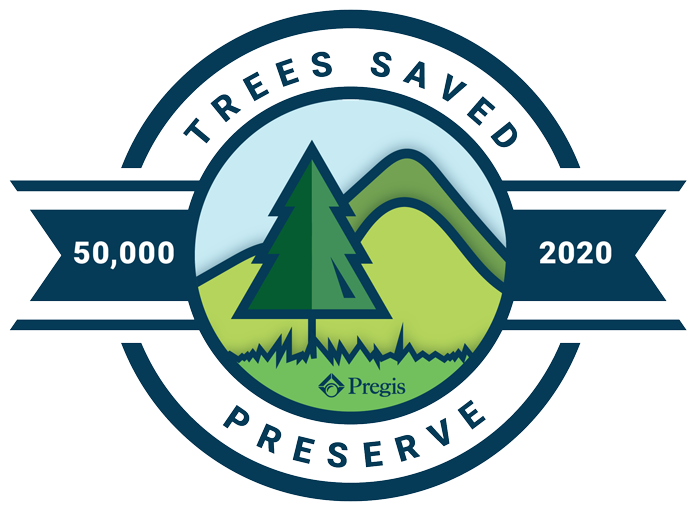
The Preserve Award
The Pregis Preserve Award celebrates our partners that are helping us reach our 2030 goal of preventing 15 million new trees from being harvested.
Sustainable sourcing is a critical component of a greener future. Saving trees creates positive ripples that have an outsized impact on climate, pollution reduction, and quality of life. This initiative will save almost 140 km2 of forest (about 20,000 soccer/futbol/Fußball fields), and help absorb 2.610.000.000 kg of CO2.
To reach a more sustainable future, companies need to take responsibility not just for their products and practices, but for the products and practices they support. By committing to using ethical, sustainable suppliers for their packaging, our partners are choosing to lead sustainability efforts globally, and are working towards a better future for everyone.
Trees Saved by Pregis Easypack
In 2019, we received a Forest Stewardship Council® (FSC®) Chain of Custody, FSC Recycled certification (FSC® C151114), recognizing Easypack as an environmentally appropriate, socially beneficial, and economically viable solution for protecting the world’s forests. This award-winning, innovative packaging solution is used widely in e-commerce, furniture, automotive, and other industries to protect deliveries, along with the environment.
Easypack is curbside recyclable and made from 100% recycled content
When our customers use Easypack, they’re providing maximum protection for their packages while saving trees from being harvested to make more paper. This preserves renewable resources and prevents unnecessary reships and associated CO2 emissions from damages.
The paper is recyclable through local curbside programs, and once collected and sorted is designed to be used as feedstock for recycled materials.
These Pregis customers are dedicated to preserving the forests of the world, by reducing the number of trees that are harvested each year, and protecting them from waste contamination. They have collectively contributed to our collective 2030 goal to save 15 million new trees from harvest.

